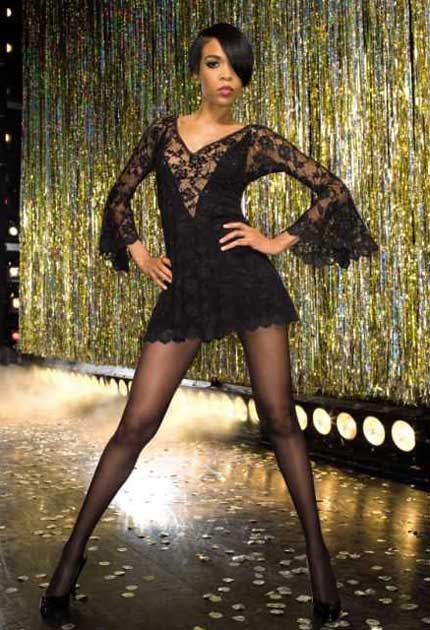Chicago, Cambridge Theatre, London
Wrong destiny for Michelle

The role of the murderess Roxie Hart in the musical Chicago must have seemed a good choice for the London stage debut of Michelle Williams, late of Destiny's Child. The revival of John Kander, Fred Ebb and Bob Fosse's musical, directed by Walter Bobbie, has accommodated many and various talents in its 12-year run, and the part, a caricature of the wide-eyed but cold-blooded killer elevated to stardom by the tabloids of the Twenties, would seem to require little acting ability. Written for Fosse's wife Gwen Verdon, a dancer with a very small vocal range, the songs are undemanding. His sex-machine choreography (recreated by Ann Reinking) is mostly small, easily managed, drop-dead-cool movements, such as rotating shoulders and clockwork-doll raised and lowered arms. (The splits are left to Leigh Zimmerman as Roxie's cellmate Velma Kelly, and the members of the chorus.)
But the most important quality for the role is one that does not appear in a straightforward inventory of its characteristics – or in Williams's performance. Chicago is a dark, dark show, dependent on its casting for falling on the right side of the boundary between cynical and depressing. Its female murderers can count on being acquitted so long as they put up an extravagantly lachrymose defence to let the public wallow in sensation and sentiment.
In order for the role to be amusing rather than distasteful, the actress cast as Roxie has to play against it. Verdon managed it with fragile-but-persistent vulnerability, and others have given it some of the radiant ingenuousness of Marilyn Monroe as Lorelei Lee of Gentlemen Prefer Blondes ("It seems that I had a revolver in my hand and it seems that the revolver had shot Mr Jennings").
Williams, however, by playing the part in a literal-minded way, creates a Roxie who is small, hard, and mean. She gives the role smugness instead of softness and becomes less sympathetic than Zimmerman, who, though meant to be the nastier one, has a sensuality and easy grace that constantly outshines Williams. At times she doesn't seem to be acting at all, as when she sits waiting for her turn to perform with the polite boredom of a singer at an audition rather than a jailed murderess suspicious of everyone's every move.
Williams isn't helped by the fact that the show's audience-pleasing numbers are given to others: Zimmerman puts plenty of pizazz into a paean to the late-night joys of Chicago and a daffy one-woman demonstration of a double act, and Di Botcher, as the prison matron, brings down the house with a Weill-style brothelkeeper's ballad. Williams's songs are far smaller in scale and she doesn't bring to them the outsize emotion (such as that of Eddie Cantor or Helen Morgan) that they were meant to satirise, in the musical's depiction of showbusiness narcissism as the prevailing tone of contemporary society.
Like many before her, Williams has underestimated the colossal amount of energy needed to power a musical-comedy performance. She is never incompetent or embarrassing, but, as George S Kaufman said, "adequate" is another word for "inadequate".
Michelle Williams will appear until 22 August. ( www.chicagolondon.co.uk; 020 7087 7599)
Join our commenting forum
Join thought-provoking conversations, follow other Independent readers and see their replies
Comments
Bookmark popover
Removed from bookmarks